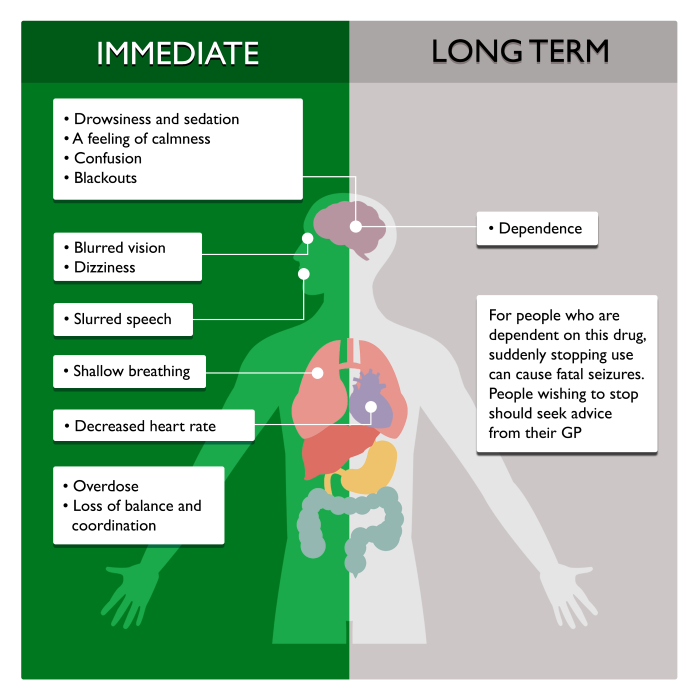What are Benzodiazepines?
Benzodiazepines are also known as benzos, downers, sleeping tablets or sleeping pills.
Benzodiazepines are medications that may be prescribed for problems such as insomnia (being unable to sleep) or anxiety. They are usually prescribed in a tablet or capsule form and the most common is diazepam (Valium). Others include alprazolam (Xanax), and oxazepam (Serepax). If used as prescribed by doctors, benzodiazepines can be effective medications. However, there are risks, particularly if they’re not used properly, or are used regularly (e.g. daily) for more than a few weeks.
Obtaining benzodiazepines without a prescription is illegal.
Versions of common benzodiazepines are manufactured for the illegal drug market. These may be deceptively labelled as 'Valium' or 'Xanax'. The lack of regulation and quality control in the illegal drug market means people purchasing these do not know the purity, dose, or strength of the benzodiazepine they are taking. This increases the risk of negative effects, including overdose.
What are the effects of Benzodiazepines?Once swallowed, benzodiazepines usually take about half an hour to start taking effect. The length of time the effects last for varies. Using benzodiazepines with other drugs, in particular alcohol or opioids, can increase the risk of harms. Find out more in Polydrug Use: Factsheet.
The effects of benzodiazepines can be immediate or long-term, as listed in the table below.
| Immediate |
Long-term |
| Decreased heart rate |
Dependence (see glossary) |
| Drowsiness and sedation |
For people who are dependent on this drug, suddenly stopping use can cause fatal seizures. People wishing to stop should seek advice from their GP |
| Shallow breathing |
|
| A feeling of calmness |
|
| Confusion |
|
| Loss of balance and coordination |
|
| Dizziness |
|
| Slurred speech |
|
| Blurred vision |
|
| Blackouts |
|
| Overdose |
|

Evidence BaseThis factsheet was developed following expert review by researchers at the Matilda Centre for Research in Mental Health and Substance Use at the University of Sydney, the National Drug & Alcohol Research Centre at the University of New South Wales, and the National Drug Research Institute at Curtin University.
- Jones, K., Neilsen, S., Bruno, R., Frei, M. and Lubman, D., 2011. Benzodiazepines: Their role in aggression and why GPs should
prescribe with caution. Australian Family Physician. 40(11): p. 862-865.
- MIMS online, 2012. MIMS online accessed 23 August 2012 via UNSW www.mimsonline.com.au.
- NSW Health, 2008. Drug and Alcohol Withdrawal Clinical Practice Guidelines - NSW, Sydney: NSW Health.
- Timms, P., 2012. Royal College of Psychiatrists Factsheet on Benzodiazepines. Last updated March 2012., Royal College of Psychiatrists: London.